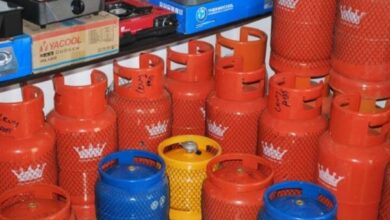
In a decisive enforcement action against food fraud, the National Agency for Food and Drug Administration and Control (NAFDAC) has seized expired and fraudulently revalidated alcoholic and non-alcoholic beverages worth over ₦30 million from retail outlets in Jos, Plateau State.
The agency confirmed that the raid followed a consumer’s complaint after suffering health complications from consuming one of the revalidated Fake and Expired Drinks in Jos drinks.
According to Mr. Kenneth Azikiwe, NAFDAC’s Director for the North Central Zone, investigations revealed that the perpetrators had chemically erased and re-stamped new expiry dates on bottles to disguise expired products as safe for consumption.
“During the raid, our team discovered a chemical substance used by the suspects to wipe off the original manufacturing and expiry dates before reprinting fake new dates on the necks of the bottles,” Azikiwe said.
“This deliberate act of deception poses a serious public health risk. Consumers must check that expiry dates are printed on the original product label—not just the bottle necks—to avoid falling victim of Fake and Expired Drinks.”
Public Health Risks and Regulatory Implications
The discovery raises deep concerns over food safety compliance and consumer protection in Nigeria’s beverage market. Experts warn that consuming expired or chemically altered drinks can lead to liver toxicity, gastrointestinal disorders, and long-term organ damage.
The scandal also highlights the persistent challenge of counterfeit and revalidated products in Nigeria’s fast-moving consumer goods (FMCG) sector — a multibillion-naira industry struggling with weak traceability and inadequate cold-chain storage in many parts of the country.
Dr. Azikiwe stressed that such criminal manipulations not only endanger consumers but also undermine legitimate manufacturers and the integrity of Nigeria’s beverage supply chain.
“We are sending a strong warning — NAFDAC will intensify surveillance and ensure offenders face prosecution. Public health safety remains non-negotiable,” he declared.
Consumers Urged to Stay Vigilant
NAFDAC advised consumers to always inspect expiry markings carefully and verify that products carry authentic NAFDAC registration numbers.
The agency further urged Nigerians to immediately report suspicious beverages, drugs, and packaged foods to the nearest NAFDAC office or through its toll-free consumer hotlines.
“Our mandate is to ensure that only wholesome, safe, and properly regulated products are available in Nigerian markets,” said Dr. Obida Gwary, Plateau State Coordinator for NAFDAC.
“We remain committed to protecting lives and strengthening consumer trust in Nigeria’s regulated food and beverage ecosystem.”
BRANDECONOMY ANALYSIS: Food Fraud and the Business of Trust
The Jos operation underscores an alarming trend across Nigeria’s informal beverage and retail markets, where profit-seeking merchants exploit weak oversight systems. With fake alcohol and expired beverages now circulating through open markets and rural supply chains, the economic and reputational risks for Nigeria’s beverage industry are profound.
For manufacturers and brand custodians, this incident is a stark reminder that traceability, packaging integrity, and consumer education must be central to long-term competitiveness. Investment in blockchain-based supply verification, smart labelling, and tamper-proof packaging could become the next frontier for consumer trust in Africa’s beverage economy.
Beyond enforcement, analysts say government agencies, industry stakeholders, and logistics partners must co-create stronger monitoring systems to protect Nigeria’s position as West Africa’s biggest beverage market.











